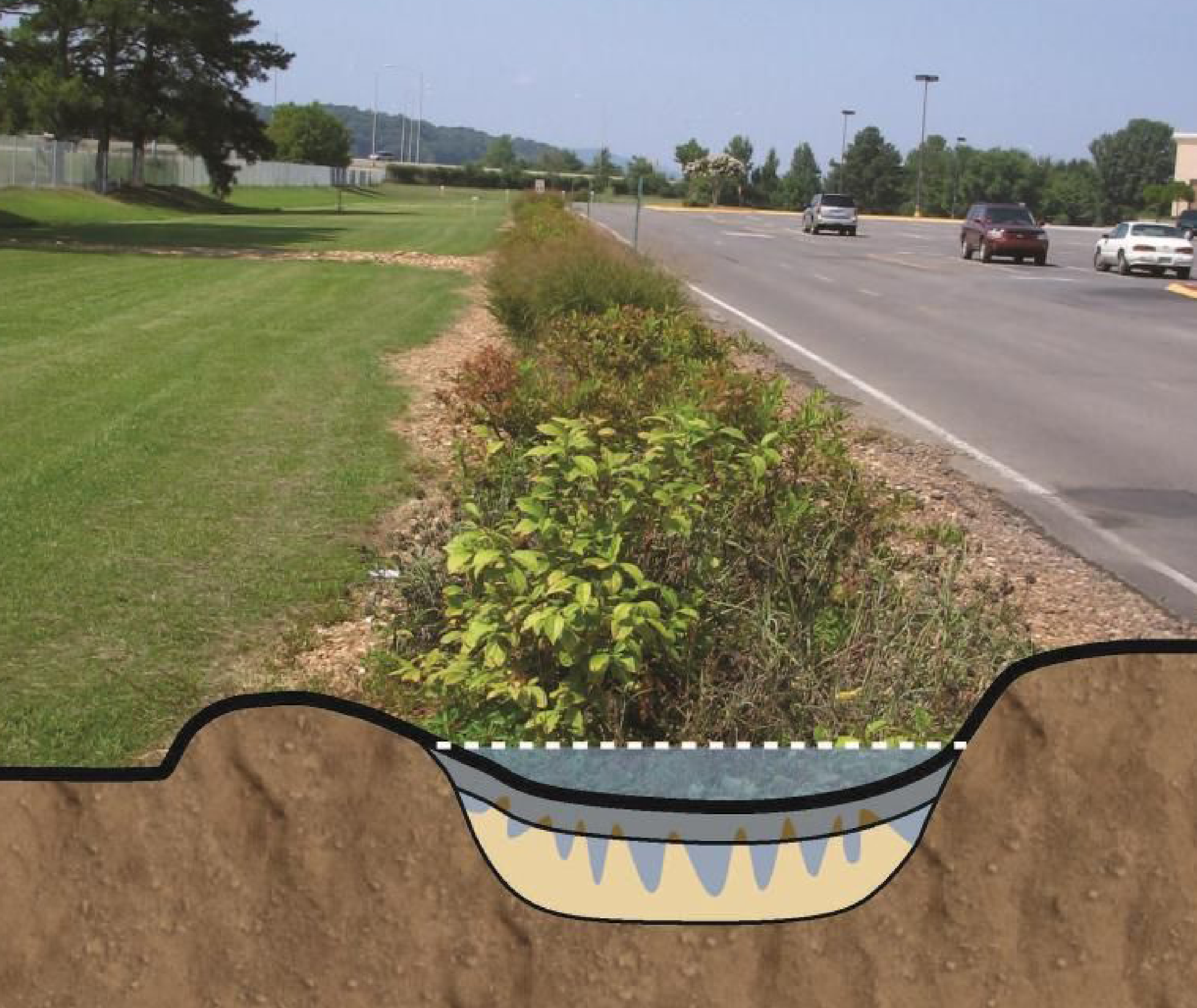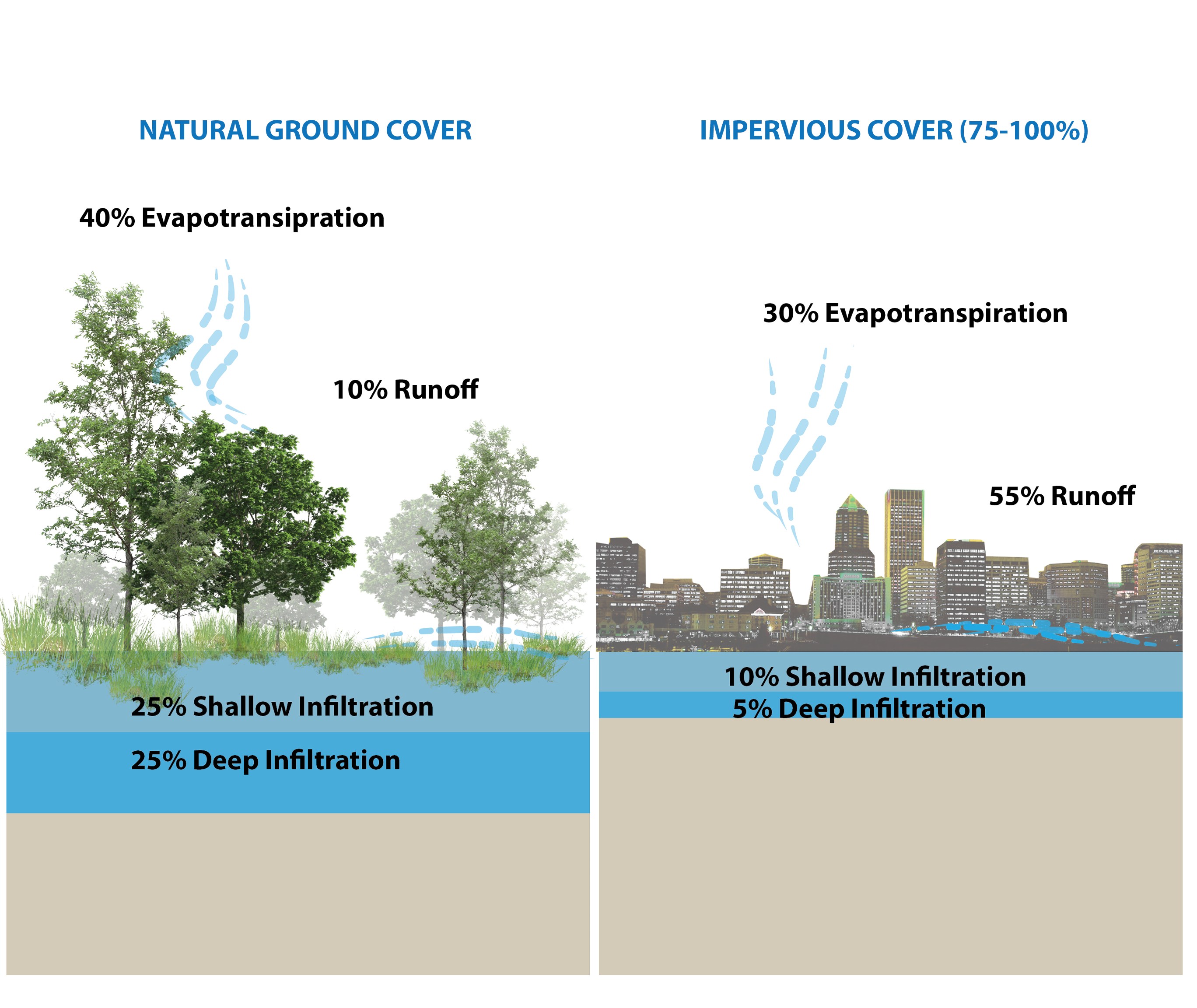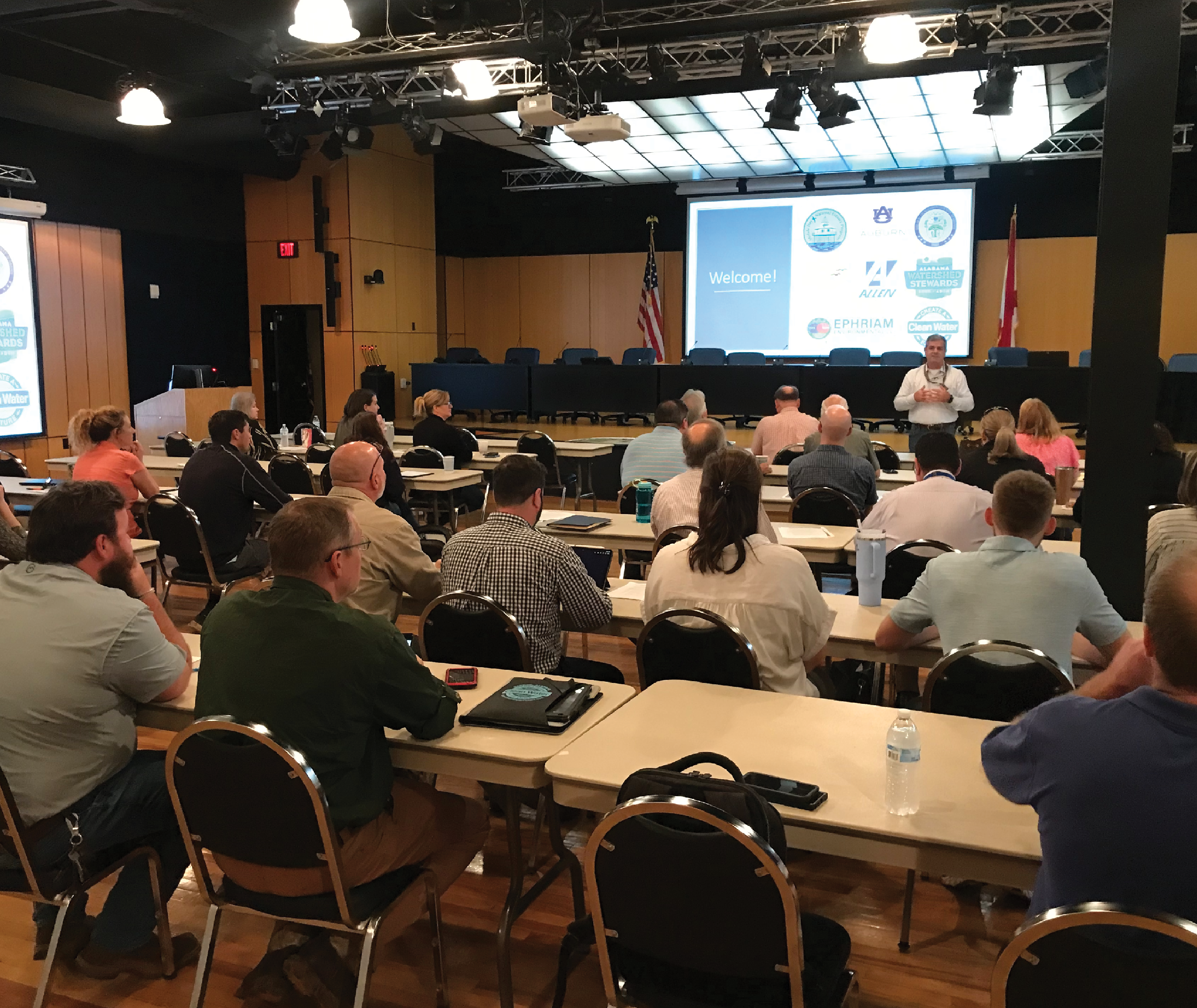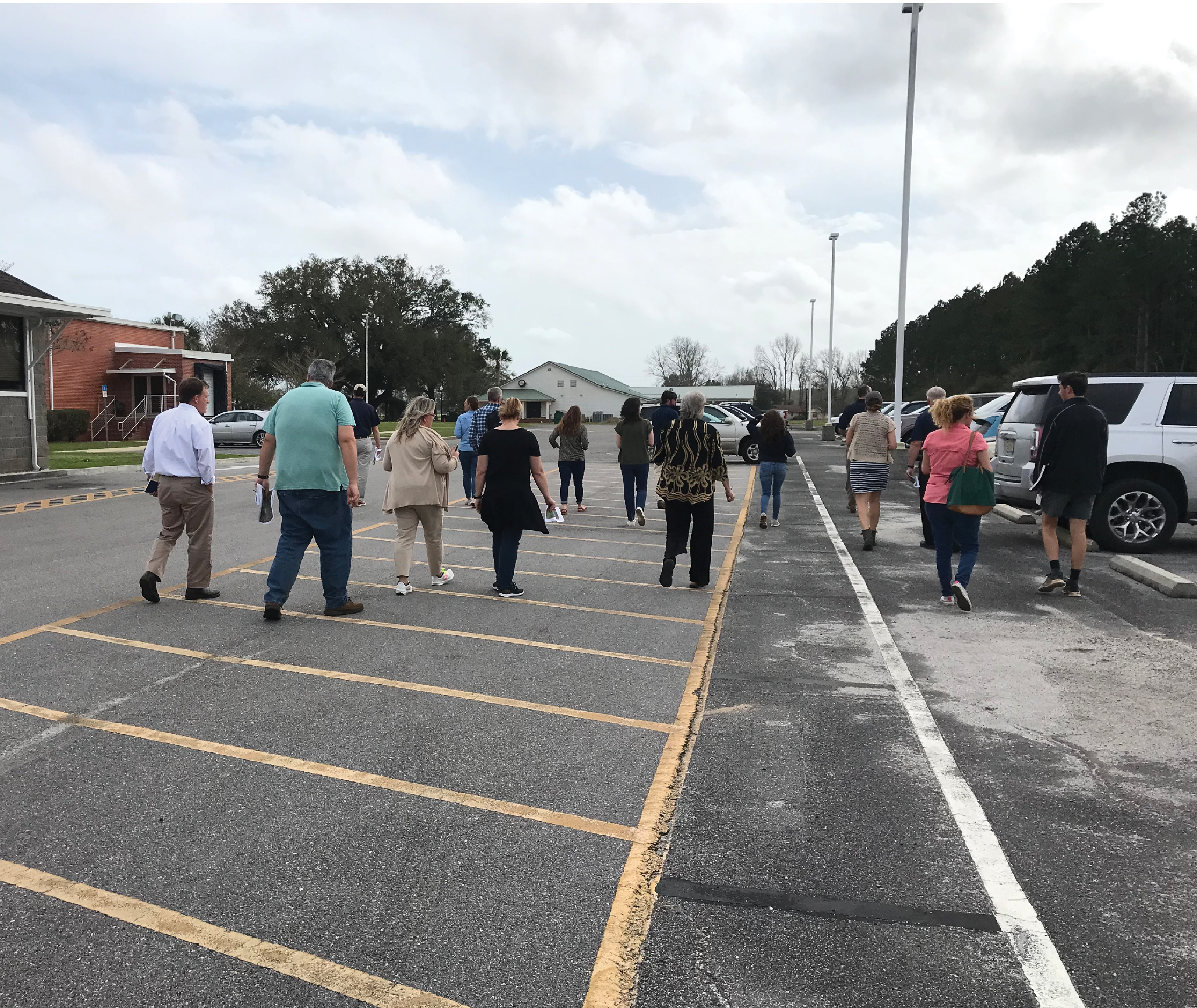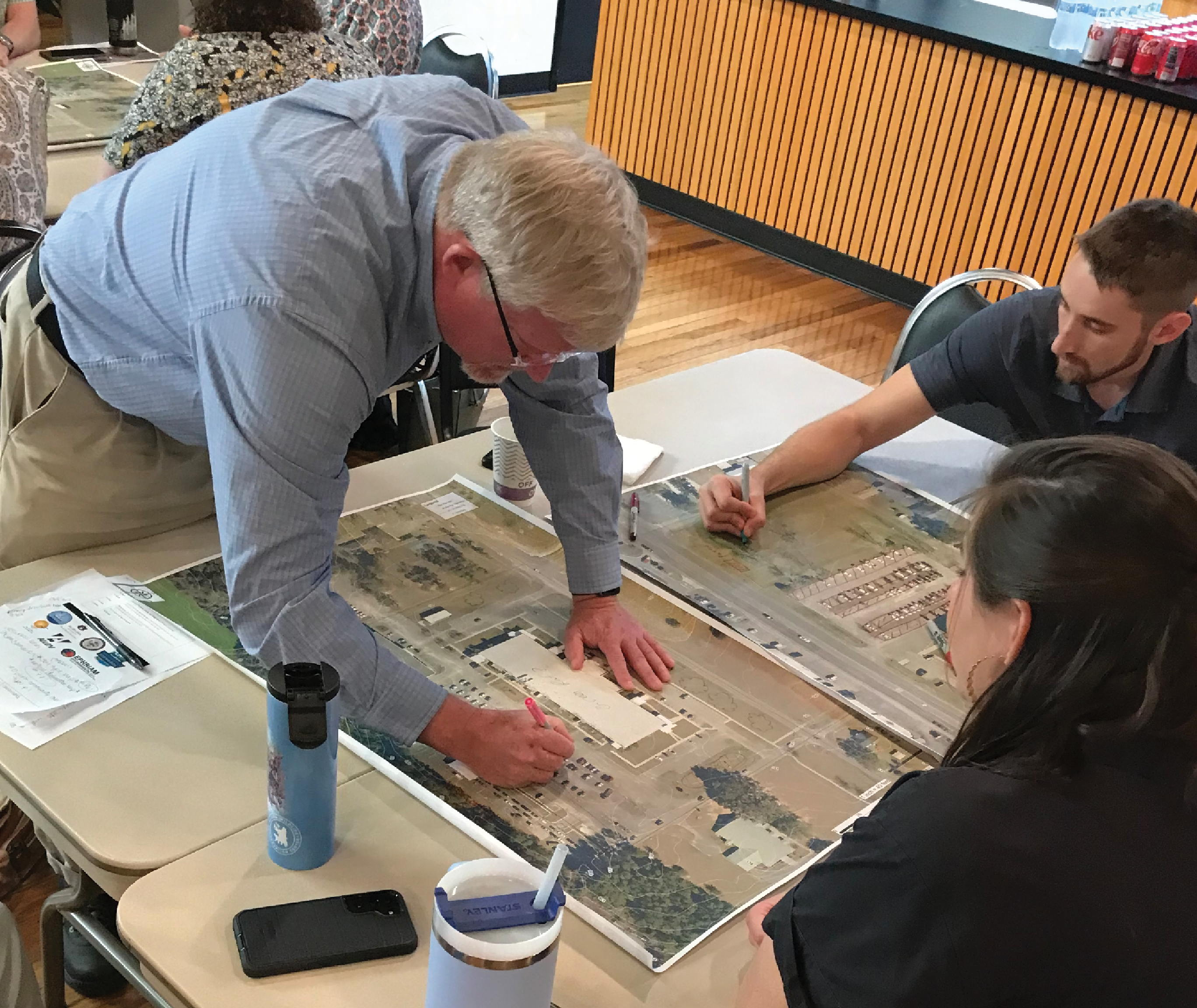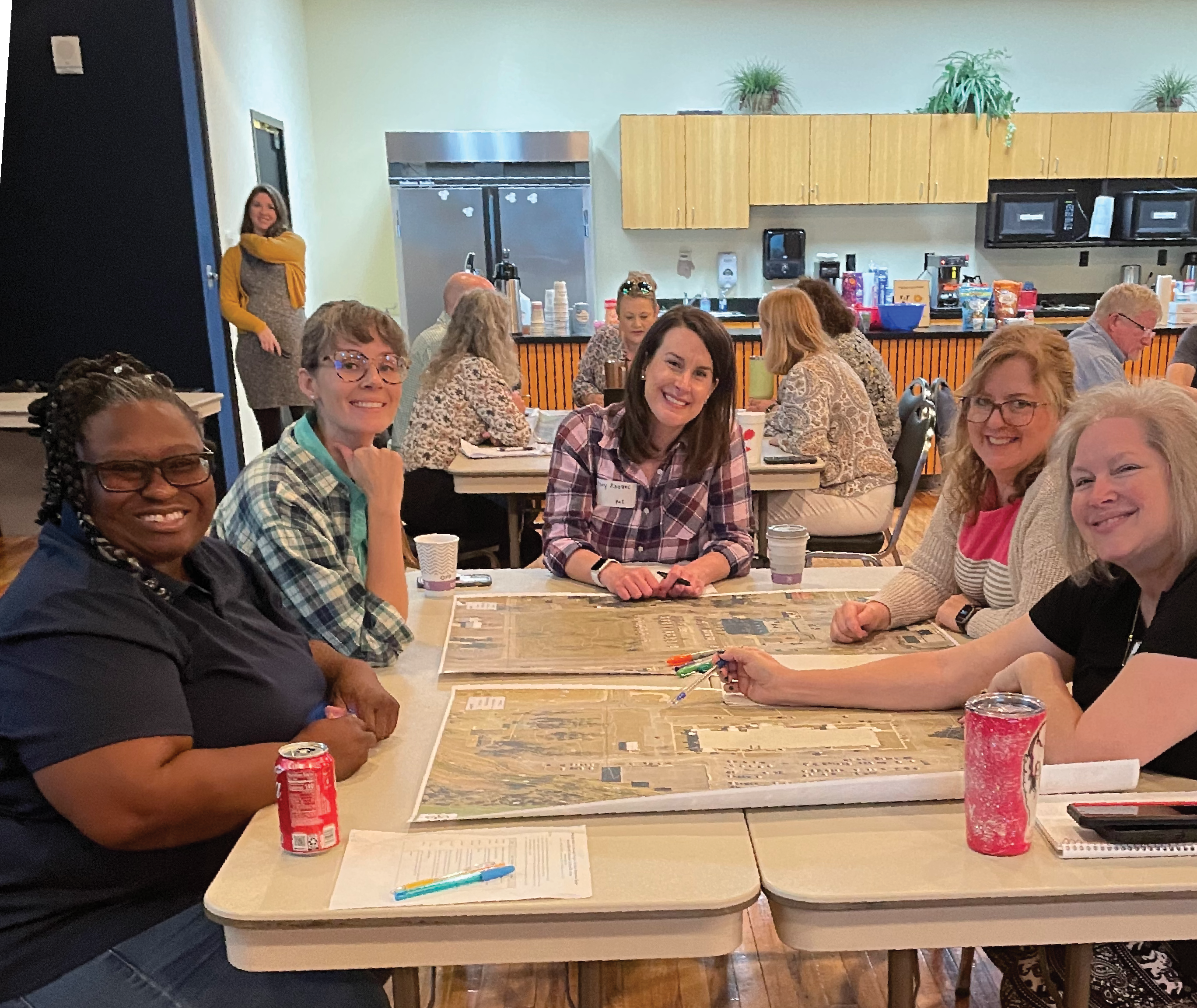AUWRC & MOBILE BAY NATIONAL ESTUARY PROGRAM HOST NATURE-BASED STORMWATER SOLUTIONS WORKSHOP
Written by Laura Bell Cooley
Many cities and counties across Alabama struggle with flooding issues, aging infrastructure, and increased development. These combined pressures are causing some cities to look into alternative stormwater management techniques, including more nature-based stormwater solutions.
These nature-based stormwater solutions, also called green infrastructure, are designed to mimic how natural hydrology would once have managed stormwater, by using swales and native vegetation to slow down and hold water so that it can infiltrate into the ground. Examples include bioswales, rain gardens, designed wetlands, tree boxes, and more.
Example of a road side rain garden with native vegetation that captures stormwater runoff from the road. Photo Credit: Alabama Low Impact Development Handbook and ACES
When rain falls on parking lots, roads and sidewalks, it is usually redirected into storm drains, which then deliver stormwater to a nearby river or stream. Large amounts of stormwater channeled directly into local waterways can cause flooding and erosion issues.
Stormwater runoff on natural vegetation versus urban impervious surfaces (visualized data from Arnold and Gibbons, 1996). Photo credit: Laura Bell Cooley
By installing various green infrastructure practices throughout a city, the amount of water being channeled into nearby streams is lessened as stormwater is allowed to slow down, spread out, and sink back into the earth. Despite this, green infrastructure practices are still slowly being adopted in Alabama, due to various barriers and, in part, a lack of education on applicable practices.
Participants at the Nature-Based Stormwater Solutions Workshop in February 2023. Photo credit: Laura Bell Cooley
In this workshop, the Auburn University Water Resources Center (AUWRC) and the Mobile Bay National Estuary Program, with support from Baldwin County, hosted a two-day workshop in which participants learned about green infrastructure case studies from Anthony Kendrick, a stormwater and green infrastructure project manager with the City of New Orleans. New Orleans has a mandate to integrate green infrastructure into new site designs to reduce flooding, providing a range of experience on how to integrate successful green infrastructure practices at large and small scales. Representatives from local and regional government, nonprofits, and state agencies were present at the event.
After exposure to a range of case studies and project funding options, participants put their knowledge to use by exploring two city owned properties in Baldwin County to consider how nature-based stormwater solutions could potentially be applied. Participants walked the sites and examined aerial maps of the locations.
Participants walked city owned sites to envision alternative stormwater solutions. Photo credit: Laura Bell Cooley
On day two, participants came together and discussed their impressions of the two sites and developed a series of stormwater priorities for each site based on feasibility and impact. Participants worked in teams to develop integrated stormwater plans for each site.
Participants draw out their vision for integrating nature-based stormwater solutions on practice sites. Photo credit: Laura Bell Cooley
Workshop participants networked across agencies, and discussed practical barriers and opportunities to nature-based stormwater solutions. Photo credit: Ashley Campbell, Baldwin County
This workshop provided both hands on experience and a new knowledge base for participants. Participants provided feedback on other valuable workshops and educational needs so that we can continue to meet the needs of our stakeholders across the state. The AUWRC looks forward to many more similar successful educational partnerships.

